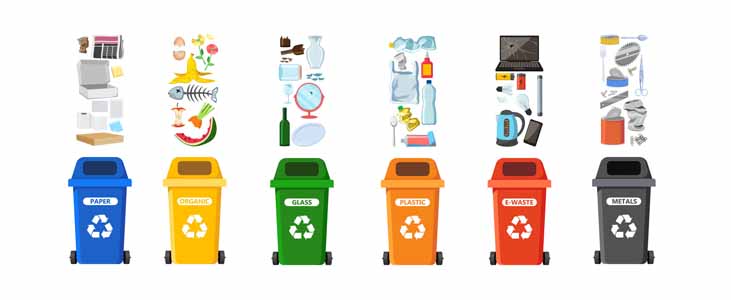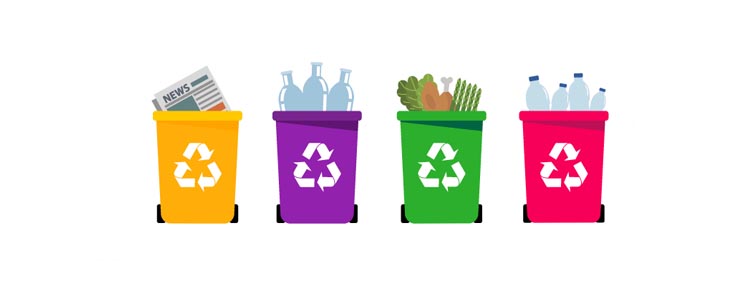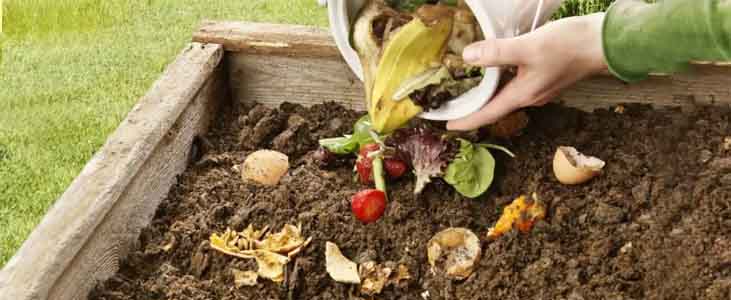Home Waste Management Ideas For Apartments
Posted on April 29, 2021
Waste is nothing but the garbage we generate on a daily basis; the things we throw away after using most of it. Almost everything we use generates waste – vegetables, fruit, poultry, meat, seafood, medicines, groceries, cosmetics, and so on.
In apartments too, there are different types of waste generated by the residents. These need to be segregated properly depending on the category it falls into. If it’s not segregated, it will become extremely difficult to dispose of it properly.
The responsibility of waste management in residential buildings collectively falls on every apartment, the management committee of the society, and the municipal workers who come to collect it.
As it is, the civic authorities are battling with the mountains of waste generated by households, businesses, and industries every single day.
Let’s first take a look at the Solid Waste Management Rules 2016 as they apply to housing societies. Waste generators (individual apartments in this case) have to segregate waste into three main categories:
- Wet or Bio-degradable
- Dry – which can be sub-classified
- Hazardous – has sub-categories
As per the rules, any entity that generates over 100 Kgs of waste a day is identified as a bulk generator; this also applies to housing societies and apartment buildings that have more than 100 units or communities living in an area greater than 5000 square meters.
Such bulk generators are mandated to handle and dispose off bio-degradable waste on-premises, either by composting or bio-methanization. This helps to reduce transport expenditure and does not impact the environment as much.
Types of Waste

The first and foremost rule in-home waste management is identifying and segregating waste correctly. This will help your society committee and municipality workers in proper disposal and recycling.
1. Wet Waste
Basically, this is the food waste – peels, bones, eggshells, leftovers, tea or coffee powder, and so on
Literally, every Indian kitchen produces waste on a daily basis. Keep that in mind consider how to organize a small apartment kitchen properly
2. Sanitary Waste
Used pads and diapers, bandages (both used cloth as well as disposable), and so on
3. Dry Waste
Dry waste management is actually slightly complicated as there are again two categories, and sometimes even three. Ideally, this should be separated into paper and plastic.
When you buy electronic equipment, you are likely to get thermocol, generating a third type of dry waste.
All kinds of paper waste – like newspaper, bills, letters, cardboard boxes, and so on, in one; plastic wrapping, packaging, disposable containers, bottles, pouches, bags, and so on. Thermocol if any, should be kept separately.
4. Hazardous Waste
Dry cell batteries, CDs, bulbs, tube lights, aerosol cans, insecticides, electronic waste, discarded medicines, syringes, broken glass, thermos flasks, razors, knives, blades, and so on. Maybe the increase in Hazardous Waste is because of your smart home.
5. Other Dry Waste
Metal objects like utensils, cans, broken curios, aluminum foil and containers, bottles, toothpaste or cosmetic tubes, etc.
Additionally, there is some waste that may be generated by the building as a whole and not from individual households. This includes
Garden Waste
Leaves, twigs, branches
Inert Waste
Discarded or leftover cement, mud, gravel, tiles, steel bars, paint, and other construction material.
Best Waste Management Plan In Apartments

Waste management refers to the process of collecting, transporting, handling, and subsequent recycling or disposing of the waste.
Here the 3 Rs are very important: Reduce, Reuse, Recycle. Here waste management in-home, in your apartment, is a critical part, as households are the starting point for waste generation, as well as management.
If your household waste management is done properly, you can help the municipality and your locality as well, to remain clean and free of garbage.
And if your household waste management is not done properly.Then may be pests or animals already living inside the apartment. Hence, you don’t realize exactly which pest is living in the apartment. It can be bugs, rats, or birds. The best way here is to do an in-depth cleaning of the apartment and secondly do pest control at home.
Reduce:
Try to generate as less waste as you can; this can be achieved by consuming less, especially when it comes to plastic and paper. Switch to cloth bags for shopping, and refuse copies of card swipes, or receipt at ATMs – a couple of examples.
Reuse:
This is one of the easier things to do in-home waste management. Before you throw something away, see if it’s possible to use the same thing again, till it becomes incapable of being used further – strong plastic bags are an example; as are children’s clothes; plastic bottles and containers, and so on.
You can also reuse something by re-purposing it: turn an old nighty into a foot mat, tear up old bedsheets to use as dishcloths, soft cloth can be used for dusting, etc.
The more creative among you can look up DIY ideas to turn old CDs, broken coffee mugs, plates, etc. into curios or handy objects like penholders, coasters, and so on. Try some amazing DIY small apartment hacks.
Recycle:
Recycling can only be done if you follow proper waste disposal methods and segregation at home.
Paper, metal, and plastic, if kept separately, can be sent for recycling. You can donate old clothes (in good condition) to the needy; there are organizations that upcycle old footwear, like Greensole and Kurio.
Waste Segregation at Source As A Means Of Household Waste Management

If we keep stressing the importance of segregating waste, it is because, without it, all your efforts at waste management will fail.
When all the waste in your apartment building is strictly segregated, dry waste can be recycled, and wet waste management becomes a breeze; it can be composted, and used for the plants in the building premises.You can also read How to Compost in an Apartment
Following a five-bin concept is one of the best ways of waste management in an apartment building.
- A bin for paper recycling
- Big bin for plastic recycling
- Bin for metal waste
- Bin for hazardous waste
- Huge bin for wet waste
These bins can be placed in the ground floor lobby, or at the back of the building. Each of the bins should be a separate color, for easy identification – and it should be clearly mentioned on the bin, what it is for. This makes it easy for all residents to have clarity and reduce confusion
Every apartment building has its own arrangement for waste collection from individual flats. But you need to follow these methods of waste disposal at home:
- Wet Waste – segregate, and put it directly into the bin, and dispose of it every day, however little it may be; place an old newspaper in the trash can so that it doesn’t get dirty; it can be composted along with the rest of the waste.
- Sanitary waste – wrap it properly in the paper and seal it so that the handlers don’t get infected
- Dry paper waste – clean any paper packaging, and collect all the paper and pack it together for delivery to the local dry waste collection center
- Dry plastic waste – wash and dry all food packets, milk pouches, etc., and pack it together for delivery to the authorized collection and recycling center
- Hazardous waste – pack well and if possible, seal and put in garbage bags, and retain at home till someone comes to collect it
- Other dry waste – pack in disposable garbage bags
Garden and inert waste is the responsibility of the housekeeping staff, gardeners, and the management committee and they should dispose of it appropriately or deliver it to the recycling authorities.
Wet Waste Management At Home

Wet waste can be made into compost, as it is basically organic matter; once composted, it can be used to fertilize the plants in your building garden, or even sold or donated to agricultural units. You can also read some indoor garden for apartments.
The residents can install an organic waste converter unit either in the basement or the ground floor, where all the collected wet waste and garden waste can be turned into nutrient-rich compost.
The waste is put into a machine along with some compost stock and allowed to ferment in crates, where it is watered at regular intervals. The compost is usually ready after 15 days.
Apart from this, the management committee can take the following steps to encourage proper waste disposal and management:
- Display posters on how to manage waste at home
- Reward members who follow waste disposal instructions exactly
- Stress the importance of proper segregation and home waste management in general body meetings through A/V presentations
In conclusion
With proper management of household waste, you can ensure a cleaner, hygienic environment not just for yourself, but for the society as a whole, and can promote good health for all, and a sustainable ecology too.
It just takes a few minutes every day to ensure that you do your bit to help the government and local bodies to maintain your city clean and free of garbage.
Are you checking out the best flats in Calicut for superior apartment projects? You have come to the right place. PVS Builders are one of the most trustworthy and reputed builders in Calicut, with some of the best laid-out apartments in prime locations. Contact us today to know more!


